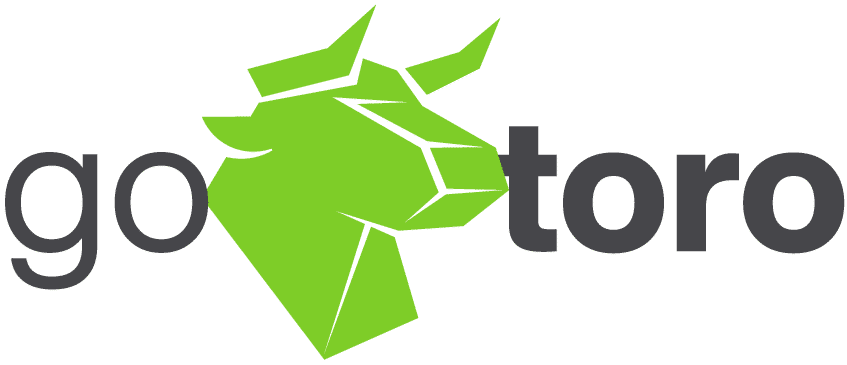Overview of the Evolving Landscape of Recruitment Marketing
In today’s fast-paced digital world, recruitment marketing has emerged as a critical strategy for organizations seeking to attract top talent. This shift marks a significant evolution from traditional hiring practices, as companies now leverage innovative marketing tactics to engage potential candidates. The essence of recruitment marketing lies in its ability to combine the power of marketing principles with talent acquisition. By understanding and adapting to these changes, organizations can position themselves as employers of choice in a competitive job market.
The Pivotal Role of Content in Modern Recruitment Strategies

Content plays an indispensable role in modern recruitment marketing strategies. It’s not just about advertising vacancies; it’s about storytelling and creating a narrative that resonates with potential candidates. The right content can convey a company’s culture, values, and vision, making it a powerful tool in attracting individuals who are not only skilled but also a great cultural fit. As recruitment marketing continues to evolve, the utilization of engaging and authentic content becomes increasingly important in building a strong employer brand and connecting with potential candidates on a deeper level.
Understanding Recruitment Marketing
Defining Recruitment Marketing and Its Objectives
Recruitment marketing is the strategic process of promoting a company as an employer to attract potential job applicants. It involves using marketing tactics to communicate the employer brand and value proposition to the job market. The primary objective of recruitment marketing is to generate interest among potential candidates, making them eager to join the organization. This approach extends beyond posting job listings; it encompasses a broader strategy that includes employer branding, candidate engagement, and nurturing relationships with potential hires, even before they apply for a job.
Differentiating Between Traditional Recruitment and Modern Digital Tactics
Traditional recruitment has typically been reactive – focused on filling specific roles as they become vacant. In contrast, recruitment marketing is proactive and continuous, aimed at building a strong employer brand and a pool of interested candidates even before a job opens up. Digital tactics play a crucial role in this modern approach, utilizing tools such as social media, company career sites, and online job boards to engage potential candidates. These digital platforms allow for broader reach, targeted messaging, and real-time engagement with potential applicants, setting them apart from the limitations of traditional recruitment methods.
The Significance of Digital Platforms in Reaching Potential Candidates
Digital platforms are the cornerstone of effective recruitment marketing. They provide a space where companies can showcase their culture, share employee testimonials, and publish engaging content that illustrates what it’s like to work at their organization. Platforms like LinkedIn, Twitter, Facebook, Tiktok, and Instagram allow companies to reach a diverse audience, including passive candidates who might not be actively searching for a job but are open to new opportunities. The ability to target specific demographics and engage with users through these platforms is a game-changer in recruitment marketing, enabling organizations to attract and connect with a wider pool of talent.
The Influence of Content in Attracting Candidates
Types of Impactful Content in Recruitment Marketing
In the realm of recruitment marketing, various types of content can be employed to engage and attract candidates. Blogs can provide insights into the company’s work environment and projects, while videos can give a real-life glimpse into the company culture and day-to-day operations. Social media posts can be used to showcase company achievements, employee spotlights, and office events, making the organization more relatable and appealing to potential candidates. This content not only informs but also builds an emotional connection with the audience, making it a powerful tool in recruitment marketing.
The Role of Content in Creating a Compelling Employer Brand
Content is the backbone of an effective employer brand. It communicates a company’s values, mission, and the benefits of working there, thus shaping the perceptions of potential candidates. Through consistent and authentic content, companies can differentiate themselves in the job market, highlighting what makes them unique. This is crucial in not only attracting candidates but also in attracting the right candidates whose values align with that of the organization. Well-crafted content can transform a company from just another workplace to a desired destination for prospective employees, amplifying the impact of recruitment marketing efforts.
Key Content Themes in Recruitment Marketing

Employee Experience and Company Culture
In recruitment marketing, showcasing the real stories of employees, the workplace environment, and the day-to-day activities is crucial. Potential candidates are increasingly interested in what their life would be like within a company. Transparently sharing employee experiences through blogs, videos, and social media posts can significantly enhance an organization’s appeal. This authentic glimpse into the company culture can be a deciding factor for many candidates when choosing their next employer.
Company Values
Communicating the core principles and ethics that guide a company is an essential aspect of recruitment marketing. By clearly articulating company values, organizations attract candidates who share similar beliefs and are more likely to be a good cultural fit. This alignment of values is fundamental not just for attracting talent, but also for retaining it, as employees are more likely to stay engaged and committed when they resonate with the company’s ethos.
Company Impact
Highlighting an organization’s contributions to the industry and society is a powerful theme in recruitment marketing. Showcasing the company’s achievements, innovations, and its impact on the community and environment can attract candidates who are looking to be part of something significant and transformative. This aspect of content not only boosts the company’s image but also instills a sense of pride and purpose among current and prospective employees.
Diversity, Inclusion, and Belonging

Demonstrating a commitment to diversity, inclusion, and belonging is no longer optional; it’s a vital component of recruitment marketing. Prospective employees want to see themselves reflected in their workplace. Creating content that showcases a diverse workforce and inclusive culture attracts a wider range of candidates and builds a more dynamic and innovative workplace. It’s important to communicate these values genuinely and consistently across all recruitment marketing materials.
Candidate Experience, Hiring, and Onboarding
Detailing the recruitment process, expectations, and support for new hires is key to a successful recruitment marketing strategy. Providing clear and concise information about the hiring and onboarding process alleviates anxieties and sets clear expectations. This transparency helps build trust and can improve the overall candidate experience, making the organization more attractive to potential candidates.
Career Progression Opportunities
Using infographics and other visual content to illustrate growth and development paths within the company is an effective way to engage potential candidates. Demonstrating a clear path for career advancement within the organization is a strong motivator for candidates seeking long-term employment opportunities. Recruitment marketing content that highlights training, development programs, and career progression possibilities can significantly enhance an employer’s attractiveness.
Strategies for Effective Content Creation in Recruitment
Identifying the Target Audience and Tailoring Content Accordingly
Successful recruitment marketing depends on understanding and targeting the right audience. By identifying the demographic, professional background, and interests of the ideal candidates, organizations can tailor their content to address the specific needs, aspirations, and values of these individuals. This targeted approach ensures that the content resonates with the right audience, making the recruitment efforts more effective.
The Importance of Authenticity and Storytelling in Content Creation
Authenticity and storytelling are the heart and soul of effective recruitment marketing. Sharing genuine stories about the company, its employees, and its culture creates an emotional connection with potential candidates. This form of storytelling is more engaging and relatable, fostering a deeper understanding and appreciation of the employer brand.
Leveraging Employee Testimonials and Success Stories
Employee testimonials and success stories are powerful tools in recruitment marketing. These personal accounts provide an insider’s perspective on what it’s like to work at the company, highlighting the benefits and opportunities that the organization offers. Sharing these success stories through various content formats, such as video interviews, written testimonials, or social media posts, adds a human touch to the employer brand and makes it more appealing to potential candidates.
Focusing on these key themes and strategies in recruitment marketing content not only helps in attracting the right talent but also in building a strong and positive employer brand in the competitive job market.
Optimal Platforms for Recruitment Content Distribution
Evaluating Various Channels

In recruitment marketing, the choice of distribution channels is crucial. Platforms like LinkedIn, company career pages, and job boards each offer unique advantages and cater to different audiences. LinkedIn, for instance, allows for targeted networking and reaching out to passive candidates, while company career pages can provide a comprehensive insight into the company culture and values. Job boards are effective for reaching a wide audience actively seeking employment. A thoughtful selection of these channels can significantly enhance the visibility and effectiveness of recruitment content.
Beyond LinkedIn and job boards, other social media platforms like Instagram and TikTok are becoming increasingly influential in recruitment marketing. Instagram’s visually driven content allows companies to showcase their culture and brand in a more personal and engaging manner. TikTok, with its unique blend of creativity and informality, offers a fresh avenue for connecting with a younger demographic. Its high engagement rates and diverse user base provide an excellent opportunity for recruiters to share authentic, behind-the-scenes looks at company life, innovative job postings, and interactive content that resonates with a broad audience. This approach not only expands the reach but also adds a dynamic and modern touch to your recruitment strategy.
The Advantages of a Multi-Platform Approach
Adopting a multi-platform approach in recruitment marketing ensures a broader reach and engages diverse candidate groups. Different platforms cater to different segments of the job market, and by leveraging a combination of these channels, companies can ensure their content reaches a wider, more varied audience. This approach not only increases the chances of finding the right candidates but also strengthens the employer brand across various digital landscapes.
Examples of Effective Content Marketing Across Different Channels
Effective recruitment marketing involves tailoring content to suit the strengths of each platform. For instance, LinkedIn is ideal for sharing professional content and thought leadership articles, whereas Instagram can be used for showcasing company culture through visuals. Twitter can facilitate real-time engagement and conversations, and job boards can host detailed job descriptions and company profiles. By adapting content to the specific format and audience of each platform, organizations can optimize their recruitment marketing efforts.
Challenges in Recruitment Content Marketing
Addressing Common Obstacles and How to Navigate Them
Recruitment marketing faces several challenges, including standing out in a crowded digital space and ensuring content reaches the intended audience. To navigate these challenges, companies need to focus on creating unique, engaging content and utilizing SEO strategies to enhance visibility. Regularly analyzing the performance of content and adapting strategies accordingly is also key to overcoming these obstacles.
Balancing Creativity with a Professional Tone
One of the key challenges in recruitment marketing is striking the right balance between being creative and maintaining a professional tone. While creativity attracts attention, it’s important to ensure that the content aligns with the professional image of the organization. The content should be engaging and innovative but also reflect the values and seriousness of the company.
Keeping Up-to-Date with Emerging Trends and Technological Advancements
The digital landscape is constantly evolving, and keeping abreast of the latest trends and technological advancements is crucial for successful recruitment marketing. This includes understanding the changing dynamics of social media algorithms, adapting to new content formats like augmented reality or interactive videos, and leveraging data analytics to refine content strategies.
The pivotal role of content in recruitment marketing is clear: it’s essential for attracting top talent and building a strong employer brand. As you consider the power of storytelling, the importance of various digital platforms, and the emerging trends in content creation, remember to reflect and adapt your strategies for maximum impact. For those keen on further enhancing their recruitment efforts, exploring programmatic job advertising can offer a significant edge. To see how this innovative approach can transform your talent acquisition process, we encourage you to request a demo today.


